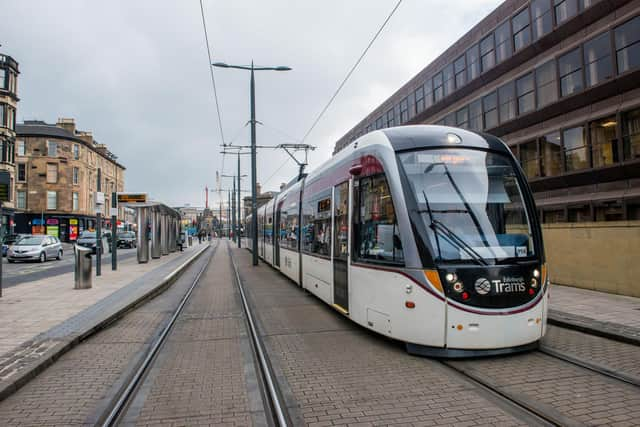Small Edinburgh firm wins contract to fit trams with alarms to prevent disaster
and live on Freeview channel 276
A small Edinburgh firm has won a contract to fit city trams with alarms to prevent disasters caused by drivers’ loss of concentration.
IHF Ltd beat out 113 mostly much larger companies in competition for the £168,000 Driver Innovation Safety Challenge (DISC) contract.
Advertisement
Hide AdAdvertisement
Hide AdThe system they will implement is designed to monitor drivers and give early warning if they fall asleep, black out or lose focus.


Edinburgh trams already have systems in place to stop a tram if the driver is incapacitated, and will trigger an alarm if no driver activity is detected for 400 metres. The driver must cancel the alarm or the emergency brake will kick in.
The new technology aims to pick up on earlier and more subtle indicators, monitoring factors such as heart rate, sweat and breathing.
It aims to prevent disaster such as that in Croydon in 2016 when a tram derailed on a bend killing seven people, after the driver is thought to have fallen asleep, and the Glasgow bin lorry crash in 2014 which killed six people after the driver passed out.
Advertisement
Hide AdAdvertisement
Hide AdIHF Ltd, founded 10 years ago by CEO Neil Clark, has already been working on this kind of technology for some time.
In 2007, while working as a military pilot, Mr Clark, 40, won a scholarship to study a Masters degree in human factors – the science of human error – at Heriot Watt university.
Staff at the university got in touch again several years later after he had founded IHF, suggesting he continue working on the research.
“All of a sudden the DISC project dropped on our lap and in a way we already had the means. It’s a case now of commercialising that lab work,” said Mr Clark.
Advertisement
Hide AdAdvertisement
Hide AdIHF Ltd hopes to have a consultation with tram drivers in Q3 or Q4 of 2021, with the delivery date for the project in 2024.
One of the biggest challenges facing IHF is using algorithms to predict what signals from drivers mean – making sure the system can differentiate between normal activity and loss of concentration.
“It was really nice to come out on top as a small Edinburgh company working with such a big Edinburgh project,” said Mr Clark, whose company has around 20 staff.
“Human factors is a relatively new science. Human contribution has got a massive part to play but people shy away from that because it's hard to get your head around.
Advertisement
Hide AdAdvertisement
Hide Ad“I’m really excited about the potential of it all, and to see where this journey goes.”
Colin Kerr, engineering manager at Edinburgh Trams said: “Edinburgh Trams already have systems in place that will bring a tram to a controlled halt if the driver becomes incapacitated.
“Following a thorough review of our operational and fatigue management procedures, including the careful planning of duties and face-to-face sign-on, we started looking at how technology could enhance or assist us in these areas.
“DISC was set up to explore new technology that could monitor driver alertness, wellbeing and health.”